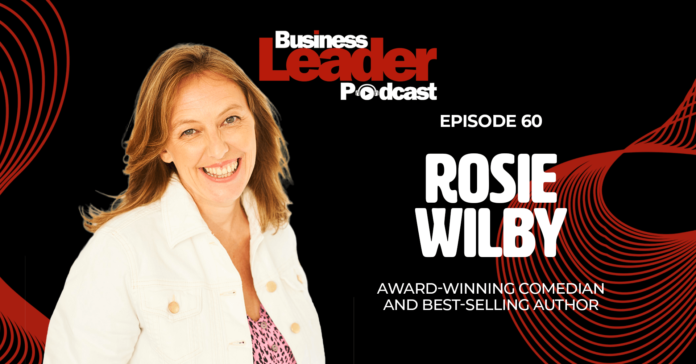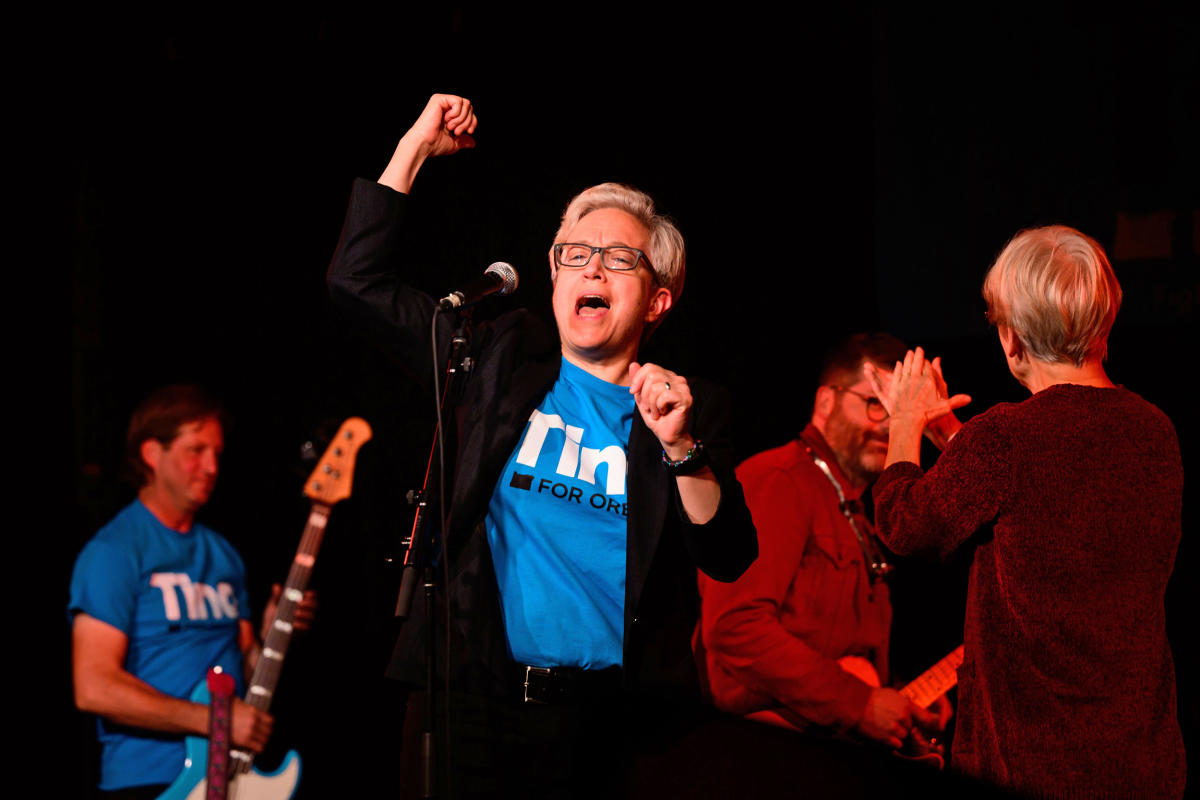
Rosie Wilby is an award-winning comedian, best-selling author and host of ‘The Break-Up Monologues’ podcast. Her most recent book, which goes by the same name, explores what skills someone can learn from breakups and why they can actually be beneficial. Previously, she has been the founder of a boutique music PR agency and a patron of the LGBTQ charity, Switchboard. We speak to Rosie about business skills you can learn from a break-up, the type of resilience you learn from stand-up comedy and how her sexuality has impacted her career.
What was your journey to where you are now?
I grew up in a town called Ormskirk near Liverpool. As a teenager, I grappled with my identity, particularly as a young gay woman coming out at a time when we weren’t so open to people being gay and having more fluid sexualities and gender identities.
It was challenging to find my place in the world, and I desperately wanted to go to London, because at the time there were more opportunities to be more creative in terms of defining myself but also defining what I wanted to do.
I started my career in the media world through being a trainee on a media course and helping production companies to make programmes and films. I subsequently became very interested in media and have had various jobs, including founding my own PR agency and working as a music journalist.
But I really wanted to find my own voice and comedy seemed like an interesting way to do that. It’s a great way of making interesting and challenging questions about human relationships and existence accessible – that’s what really interested me.
How do you feel your sexuality has excelled or hindered your career?
Things have changed so much but feeling different from the people we see in a certain environment does make us feel less confident about what we have to offer.
Had I not been gay or been gay at a different time when the world wasn’t so hostile, I think would have had a different type of career because there would have been more jobs, I would have been more comfortable applying for.
If you think about gay people in the 1980s and 1990s, most people going into corporate roles would have had to hide their identity. This just wasn’t for me, I was very interested in being authentic and being who I really am. Comedy has really been a way for me to do that. Comedy has traditionally been for people outside the mainstream.
You mention how that adversity has allowed you to lean into your comedic work. Do you think there’s truth in the idea that most comedians have a sad or dark side?
There have been studies that show that comedians are a very complex mix of extrovert and introvert. I often battle between these two elements – wanting to stay at home and also wanting to go out on stage and enjoy the audience’s reaction.
I feel like I’ve always experienced two dualities. When I was growing up, my mother was an English literature lecturer and my father was a maths lecturer, so I always had this conflict of whether I should go down the science route or creative route. I’ve always sat between two binaries.
What is really specific about comedy is the fact you’re being vulnerable and getting rejected. What is the benefit of experiencing this?
Comedians are very agile at learning from failure. Because instead of going home and encouraging ourselves we don’t need to change anything, we go home and feel like we need to change everything. So, you become very creative in those moments after a gig – if you don’t decide to quit altogether. These moments can be very discombobulating, but they are also an opportunity for us to figure out whom we want to be and how we want to go about rebuilding ourselves in a new way. Comedians unknowingly develop agile resilience skills.
Is realising that not everyone is going to like you a part of being a good public speaker?
With everything, the number of times you deliver something makes you more confident in what you have to say. Because you realise that the times it hasn’t worked are the exception rather than the rule – if you do have a good piece of content.
You do find that sometimes the audience just doesn’t connect with what you’re saying, or they might just be a really difficult audience. The more you do something and hone in on it, the easier it is to develop your sense of purpose.
In those moments when you haven’t gotten the reception you wanted and you feel like quitting, what do you do?
It’s important to remember times it has gone well and listen to the peers and colleagues that you trust. When I’m at Edinburgh Fringe Festival and having a difficult run of performances and want to see some familiar, friendly faces, I will invite people who I know understand my performance for support. That way, you have people there that can give you constructive criticism rather than harmful criticism.
One major aspect of work relationships is conflicts that arise from work politics. What have you witnessed as being the biggest challenges that people face in working relationships?
Communicating vulnerably is very difficult. Especially when we are a business leader, we may feel like our authority is threatened. Once I had a manager that would overshare about her personal life but I’ve also met leaders that are very rigid and been ex-military people. So it’s important to tow the line of being vulnerable but not oversharing.
I would really recommend stand-up comedy for anyone who wants to learn how to communicate more effectively. Because you only have a short amount of time to impress the audience and a part of that is being open to connect with people.
You have a book and podcast called The Break-Up Monologues, where you explore the lessons learned from relationship separations. Why are break-ups important in teaching us business lessons?
The book is about how adversity can be an opportunity for us to reset our feelings about what we want to do in the world. It really does require some agile thinking, optimism and dreaming – to think about which direction you’re going to go in next.
The book is about the hope that when you go through a relationship break-up, you can go onto a new thing – break-ups can be a learning and positive experience, because it’s a catalyst for change.
Break-ups are essentially a universal experience. What is the most important skill you can gain from a separation?
Recognising that change is scary, but it should be embraced, and knowing that good times will be coming soon. Reaching out to support networks is also really important to get advice and help on what you should do next – so you can draw the next chapter of your life.
You can find Rosie’s book here:
https://linktr.ee/breakupmonologues
And for more info about Rosie:
https://londonspeakerbureau.com/speaker-profile/rosie-wilby/








